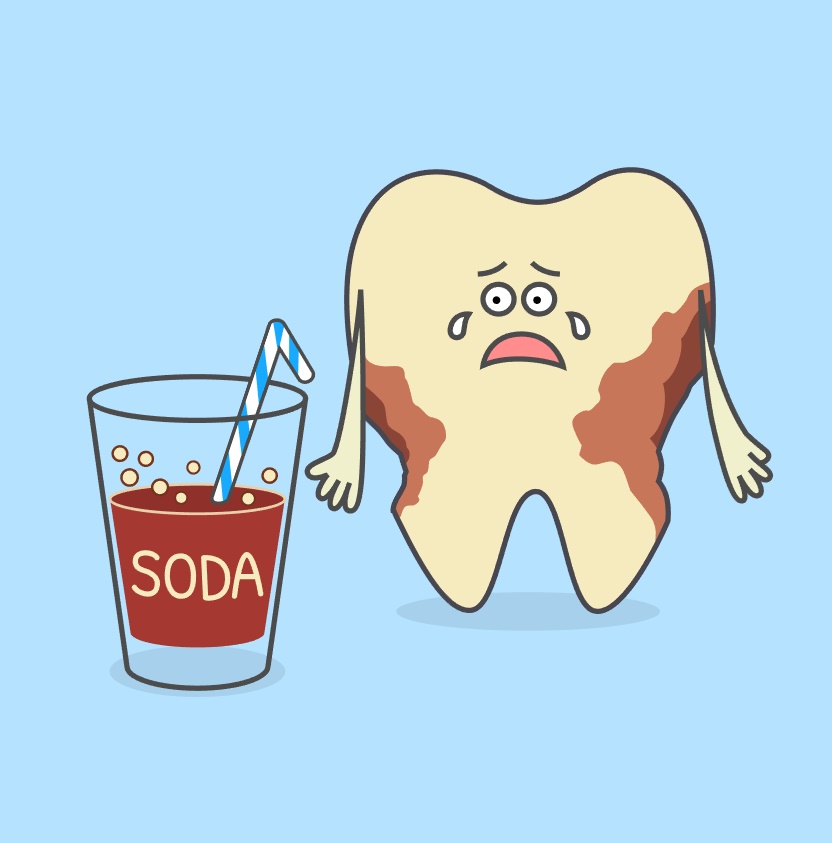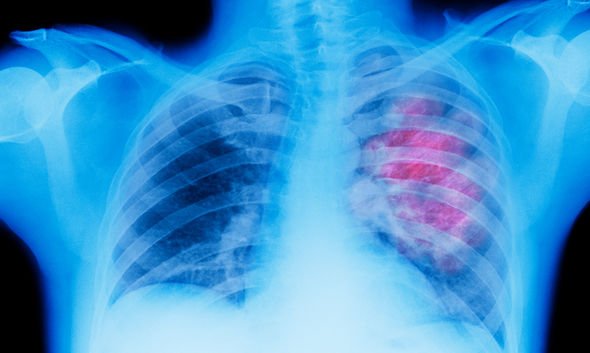Diet Soda Bad For Teeth

The consumption of diet soda has been a topic of controversy in recent years, with many health experts weighing in on its potential effects on our overall well-being. One area of concern that has garnered significant attention is the impact of diet soda on our teeth. While many of us may think that diet soda is a harmless alternative to regular soda, the truth is that it can be just as detrimental to our oral health.
To understand why diet soda is bad for our teeth, it’s essential to examine its ingredients and how they interact with our mouths. Diet soda contains a variety of acids, including citric acid and phosphoric acid, which can erode the enamel on our teeth. Enamel is the hard, outer layer of our teeth that protects them from decay and sensitivity. When acid comes into contact with enamel, it can wear it away, leaving our teeth vulnerable to damage.
But that’s not all - diet soda also contains artificial sweeteners like aspartame and sucralose, which can be just as harmful to our teeth as sugar. These sweeteners can contribute to the formation of cavities and tooth decay, particularly in people who are prone to these conditions. Furthermore, the carbonation process involved in making diet soda can also lead to tooth erosion, as the carbon dioxide reacts with water to form carbonic acid.
The effects of diet soda on our teeth can be significant. Studies have shown that people who consume diet soda regularly are more likely to experience tooth erosion, cavities, and sensitivity. In fact, one study found that the teeth of diet soda drinkers were similar to those of people who consumed regular soda, with both groups showing significant signs of erosion and decay.
So, what can we do to protect our teeth from the harmful effects of diet soda? The first step is to reduce our consumption of diet soda altogether. If we can’t quit cold turkey, we should at least try to limit our intake to special occasions or switch to a different type of beverage. We should also make sure to practice good oral hygiene, including brushing our teeth at least twice a day and visiting our dentist regularly for check-ups and cleanings.
In addition to these general tips, there are some specific things we can do to mitigate the effects of diet soda on our teeth. For example, we can try rinsing our mouths with water after consuming diet soda to help neutralize the acid. We can also use a straw when drinking diet soda to reduce the amount of contact between the soda and our teeth. And, of course, we should always choose a toothpaste that contains fluoride, which can help strengthen our teeth and prevent decay.
It’s also worth noting that there are some alternatives to diet soda that we can try. For example, we could switch to seltzer water or unsweetened tea, both of which are low in calories and acids. We could also try infusing our water with fruits or herbs, which can add flavor without adding sugar or artificial sweeteners.
In conclusion, while diet soda may seem like a harmless alternative to regular soda, it can have significant effects on our teeth. By understanding the ingredients and effects of diet soda, we can take steps to protect our oral health and reduce our risk of tooth erosion, cavities, and sensitivity. Whether we choose to reduce our consumption of diet soda or switch to a different beverage altogether, the key is to be aware of the potential risks and take action to mitigate them.
Is diet soda really bad for my teeth?
+Yes, diet soda can be bad for your teeth. The acids and artificial sweeteners in diet soda can erode the enamel on your teeth, leading to sensitivity and decay.
How can I reduce the effects of diet soda on my teeth?
+You can reduce the effects of diet soda on your teeth by rinsing your mouth with water after consumption, using a straw, and practicing good oral hygiene. You can also try switching to a different beverage or limiting your intake of diet soda.
Are there any alternatives to diet soda that are better for my teeth?
+Yes, there are several alternatives to diet soda that are better for your teeth. You could try seltzer water, unsweetened tea, or infusing your water with fruits or herbs. These options are low in calories and acids, making them a healthier choice for your oral health.
How often should I visit my dentist if I drink diet soda regularly?
+If you drink diet soda regularly, you should visit your dentist at least twice a year for check-ups and cleanings. Your dentist can help monitor the health of your teeth and provide guidance on how to reduce the effects of diet soda on your oral health.
Can I still drink diet soda if I take good care of my teeth?
+While taking good care of your teeth can help reduce the effects of diet soda, it's still important to be mindful of your consumption. Even with good oral hygiene, diet soda can still cause erosion and decay over time. It's best to limit your intake or switch to a different beverage to protect your teeth.
Pros and Cons of Drinking Diet Soda

Pros:
- Low in calories, making it a popular choice for those watching their weight
- Convenient and widely available
- Can be a tasty alternative to water or other low-calorie beverages
Cons:
- Can erode tooth enamel and lead to sensitivity and decay
- Contains artificial sweeteners that can be harmful to overall health
- Contributes to the formation of cavities and tooth decay
- Can lead to an increased risk of heart disease, stroke, and other health problems
Step-by-Step Guide to Reducing Your Consumption of Diet Soda

- Identify your motivations for wanting to reduce your consumption of diet soda. Is it to improve your oral health, reduce your calorie intake, or simply to break the habit?
- Keep track of your diet soda consumption for a week or two to see how much you're really drinking. This can help you become more aware of your habits and identify patterns.
- Set a goal for reducing your consumption of diet soda. This could be to cut back by one can per day, or to switch to a different beverage altogether.
- Find alternatives to diet soda that you enjoy. This could be seltzer water, unsweetened tea, or infused water.
- Gradually reduce your consumption of diet soda over time. This could mean cutting back by one can per day, or switching to a different beverage for one meal per day.
- Be kind to yourself and don't be too hard on yourself if you slip up. Remember that breaking a habit takes time and effort, and it's okay to make mistakes along the way.
In conclusion, while diet soda may seem like a harmless alternative to regular soda, it can have significant effects on our teeth. By understanding the ingredients and effects of diet soda, we can take steps to protect our oral health and reduce our risk of tooth erosion, cavities, and sensitivity. Whether we choose to reduce our consumption of diet soda or switch to a different beverage altogether, the key is to be aware of the potential risks and take action to mitigate them.
